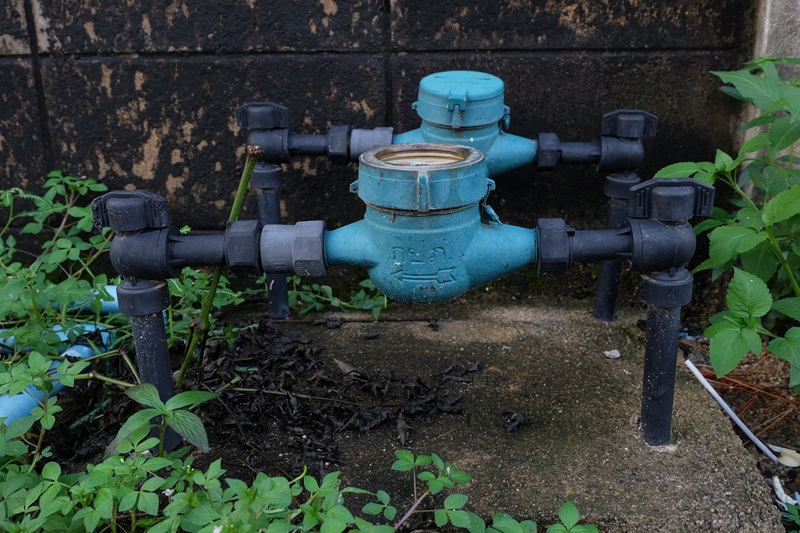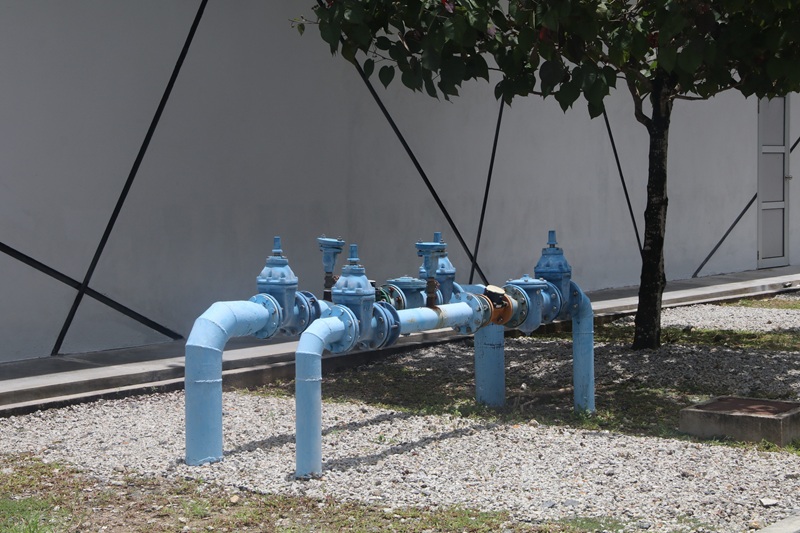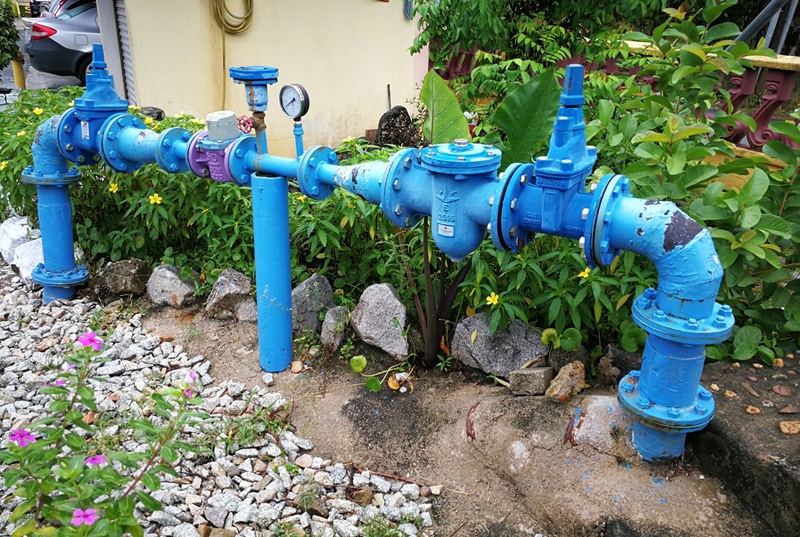Clean drinking water is not a luxury; it’s a necessity. However, most homeowners don’t realize that the very pipes bringing water to their homes can become a source of contamination. That’s where backflow prevention comes in. This essential plumbing safeguard protects drinking water from being tainted due to pressure changes in the system.
Residents who rely on Lakewood Colorado plumbers must understand how these systems work, what they prevent, and how often testing is needed. Whether it’s a home or a large business facility, backflow prevention ensures safe, contaminant-free water for everyone.
What exactly causes backflow, and how can you prevent it before it contaminates your water supply? Let’s explore this hidden danger and understand why prevention is essential and not optional.

What Is Backflow and Why Should You Worry?
Backflow is the reverse flow of water or other substances into the clean water supply. This usually happens due to backpressure or back-siphonage in the plumbing system. When there’s a sudden drop in water pressure like during a pipe burst or nearby fire hydrant use dirty water can flow backward into your drinking water lines.
This isn’t a rare occurrence; numerous systems from lawn irrigation to commercial dishwashers can create emergency backflow situations. Once contaminants like pesticides, bacteria, or chemicals enter your water supply, the health risks multiply instantly.
The Critical Role of Backflow Prevention Devices
To stop contaminated water from entering clean supply lines, professionals install backflow prevention devices. These are mechanical fixtures that allow water to flow in only one direction. Standard options include:
- Double Check Valve Assemblies (DCVA)
- Reduced Pressure Zone (RPZ) Devices
- Pressure Vacuum Breakers (PVB)
Each device is chosen based on the level of hazard. For example, an RPZ is ideal for high-risk environments like chemical plants, while a DCVA works well in irrigation systems in residential settings.
Residential Backflow Prevention: Why Every Home Needs It
Even residential properties aren’t immune. Outdoor hose bibs, sprinkler systems, and water softeners can create backflow hazards. That’s why residential backflow prevention is not optional; it’s a must-have for health and compliance.
Many city codes, including those governed by the plumbing regulatory board, require homeowners to install and maintain these systems. If your home has a sprinkler system or a secondary water source, a backflow device is likely required by law.
Commercial Backflow Prevention: Higher Stakes, Greater Responsibility
Businesses face even more stringent requirements. Restaurants, apartment complexes, hospitals, and industrial facilities all deal with larger volumes of water and higher contamination risks. Commercial backflow prevention must meet more complex plumbing codes and often involve multiple protection points.
These systems need regular inspections and maintenance. Failure to comply can lead to penalties, business shutdowns, or even public health violations.
Backflow Prevention Testing: Your Safety Checkpoint
Installing a device isn’t enough; it must function properly. That’s where backflow prevention testing comes into play. Certified professionals conduct a backflow prevention test to ensure the device is sealed and working.
Testing typically includes:
- Pressure differential checks
- Valve integrity checks
- Inspection of air inlets and seals
Most local ordinances mandate annual testing. Hiring certified Lakewood Colorado plumbers ensures your systems meet local safety standards and reporting requirements.

Emergency Backflow Situations: What to Do
Imagine waking up to brown, foul-smelling water from your tap. That’s a sign of an emergency backflow situation. These events can be triggered by a nearby construction project, a water main break, or an improperly installed irrigation system.
Immediate Immediate action is crucial:
- Stop using tap water.
- Contact your local water provider.
- Call a licensed plumber for inspection and emergency services.
Failing to act promptly could lead to severe health hazards, especially for children, elderly individuals, and those with compromised immune systems.
The Importance of Backflow Prevention Services
Regular inspection and maintenance fall under backflow prevention services. These include:
- Annual testing
- Device repair or replacement
- Installation of advanced backflow systems
- Emergency response for contamination events
A skilled team like Lakewood Colorado plumbers can handle all aspects of backflow safety—from identifying weak points to conducting comprehensive testing and system upgrades.
Regulatory Oversight: The Role of Plumbing Regulatory Board
Your local plumbing regulatory board is responsible for enforcing codes related to water safety and plumbing installations. They determine which types of backflow devices are suitable for specific applications and how frequently testing should occur.
If your device fails inspection or you’re not in compliance, you could face fines or mandatory service shut offs. Therefore, it’s smart to keep records of all backflow prevention test results and device maintenance logs.
Why Backflow Prevention is a Smart Investment
- Protects health: Keeps dangerous contaminants out of your drinking water.
- Ensures compliance: Meets legal requirements from local plumbing codes.
- Prevents costly damage: Avoids pipe replacements and water system overhauls.
- Increases property value: Homes with certified systems have added safety appeal.
Whether you own a home or run a business, backflow protection is more than a choice it’s a commitment to health and safety.

Backflow Stops Here with Licensed Local Experts
Backflow is not a minor plumbing issue it’s a direct threat to your health. Whether you’re a homeowner or managing a commercial facility, backflow prevention should be a top priority. From residential installations to meeting commercial safety regulations, regular testing and maintenance by a licensed plumber are critical to keeping your water clean and compliant.
Call A Clear Choice Plumbing and Heating today to schedule certified backflow prevention services with a licensed plumber. Ensure your system is tested, secure, and always ready to keep your water safe day in and day out.
Our team stays up to date with local plumbing codes and regulations to deliver precise, code-compliant solutions. We handle both residential backflow prevention and commercial systems, offering expert diagnostics, device installation, and emergency support.
When it comes to protecting your water supply, trust a team that puts your health and safety first because clean water shouldn’t be a question.
FAQs About Backflow Prevention
Q. What causes backflow in plumbing systems?
Ans: Backflow is usually caused by a sudden change in water pressure due to pipe breaks, pump failures, or high-demand usage that creates a vacuum.
Q. How often should I schedule backflow prevention testing?
Ans: Most municipalities require annual testing, but high-risk facilities may need more frequent checks.
Q. Can I install a backflow device on my own?
Ans: No. Backflow devices must be installed by certified professionals to comply with plumbing codes.
Q. What’s the difference between commercial and residential backflow prevention?
Ans: Commercial systems are generally larger and deal with more complex hazards, requiring more advanced devices and regular inspections.
Q. Who regulates backflow prevention standards?
Ans: Your local plumbing regulatory board is responsible for overseeing device standards, testing frequency, and compliance.Q. What do I do during emergency backflow situations?
Ans: Stop using your water, alert your utility provider, and contact Lakewood Colorado plumbers for immediate service.
